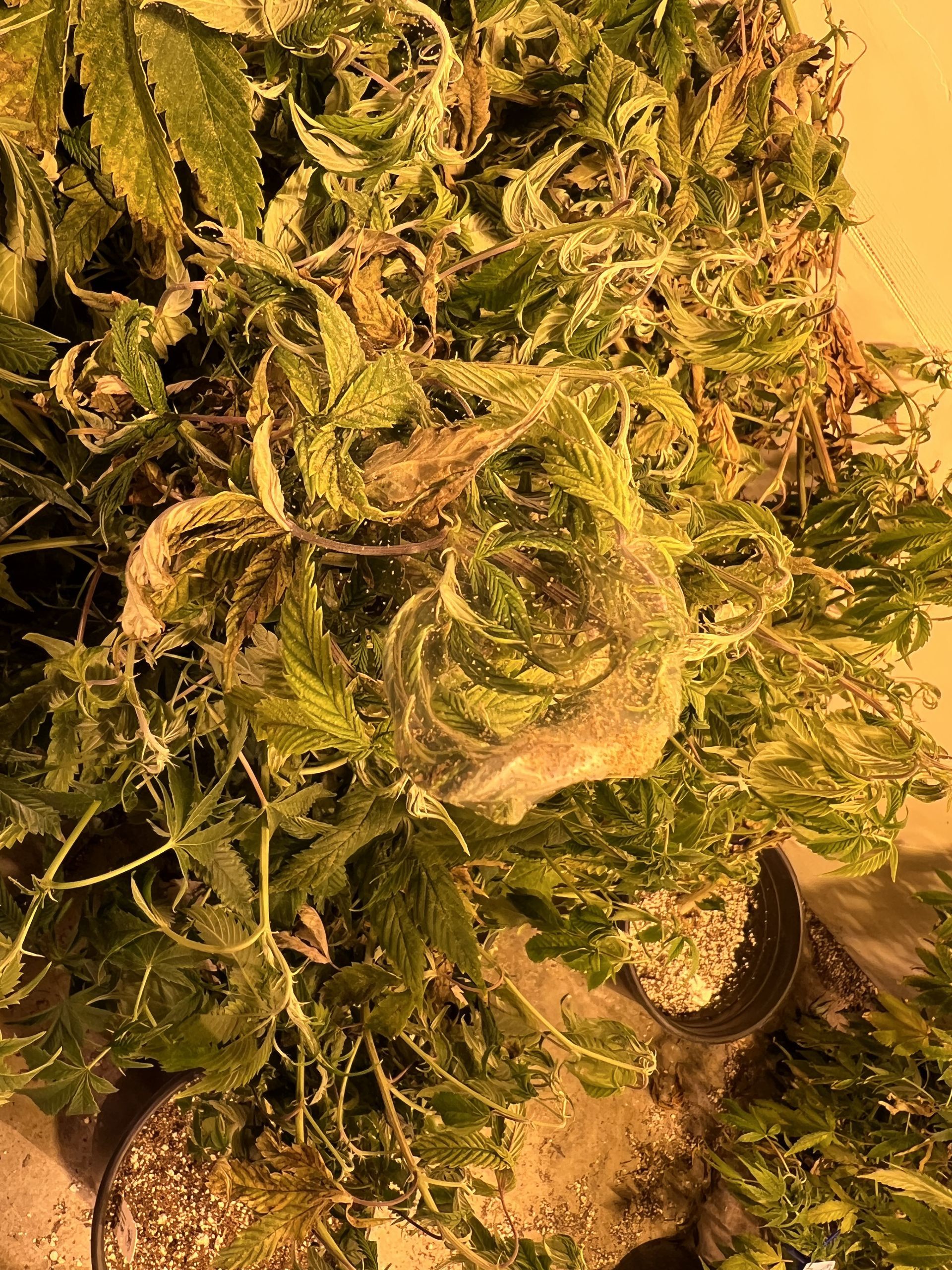Exploring Cannabis as a Potential Aid for Women with Hashimoto’s: What You Need to Know
Introduction

Hashimoto’s thyroiditis, a common autoimmune disorder, primarily affects women, leading to symptoms like fatigue, weight gain, and mood swings. While traditional treatments are available, many women are turning to alternative therapies, including cannabis, to help manage their symptoms. This article explores the potential benefits and risks of cannabis use for women with Hashimoto’s, addressing frequently asked questions and providing insights based on current research. However, it's important to note that we are not medical professionals, and this article is not intended as medical advice. Always consult with a healthcare provider before starting any new treatment.
At Terra Vita Holdings, we are committed to providing accurate, insightful information to help you make informed decisions about your health and wellness. While we do not provide medical advice, we aim to be a trusted resource for exploring natural remedies and their potential impact on various health conditions.
Understanding Hashimoto's and Its Impact on Women
Hashimoto's thyroiditis is an autoimmune condition where the immune system mistakenly attacks the thyroid gland, leading to hypothyroidism, or an underactive thyroid. This condition is more common in women, affecting them at a rate 7 to 8 times higher than men.
Symptoms of Hashimoto’s
Women with Hashimoto's often experience a wide range of symptoms, including:
- Fatigue: Persistent tiredness despite adequate sleep.
- Weight Gain: Challenges in maintaining or losing weight due to a slowed metabolism.
- Mood Swings: Depression, anxiety, and irritability that can significantly impact daily life.
- Cognitive Impairments: Difficulty with memory and concentration, often referred to as "brain fog."
These symptoms can be life-altering, leading many women to explore complementary therapies alongside conventional treatments.
Cannabis as an Alternative Therapy
Cannabis has gained attention for its potential to alleviate various symptoms associated with Hashimoto’s. The plant contains compounds like THC (tetrahydrocannabinol) and CBD (cannabidiol) that interact with the body’s endocannabinoid system, which plays a role in regulating pain, mood, and inflammation.
Frequently Asked Questions About Cannabis and Hashimoto’s
1. Can Cannabis Help Manage Hashimoto's Symptoms?
Cannabis may help manage some symptoms of Hashimoto's, particularly pain, inflammation, and mood disorders. CBD is known for its anti-inflammatory properties, which could potentially reduce thyroid gland inflammation. THC, although psychoactive, might help with pain relief and mood improvement. However, the efficacy of cannabis for Hashimoto’s varies by individual, and it should not replace prescribed treatments.
2. What Does the Research Say About Cannabis and Autoimmune Disorders?
Research into cannabis and autoimmune disorders is still in its early stages. Some studies suggest that cannabinoids may modulate the immune system, potentially reducing autoimmune attacks. A study published in the Journal of Immunology suggests that cannabinoids might suppress the immune system’s inflammatory response, which could be beneficial for autoimmune diseases like Hashimoto’s. However, these findings are preliminary, and more research is needed to establish definitive conclusions.
3. Are There Risks Involved in Using Cannabis for Hashimoto's?
Yes, there are potential risks. Side effects of cannabis use can include dizziness, dry mouth, and changes in appetite. There may also be legal considerations depending on your location. It is crucial to consult with a healthcare provider before starting cannabis, particularly if you are pregnant, nursing, or taking other medications.
4. How Should Women with Hashimoto's Use Cannabis?
If considering cannabis, start with a low dose and gradually increase it while monitoring symptoms. CBD oil is a popular choice due to its non-psychoactive nature and ease of dosage adjustment. Different forms of cannabis, including oils, edibles, and vaporizers, offer flexibility in how it can be used. It’s essential to track your symptoms and consult with a healthcare provider to tailor the dosage and form to your specific needs.
Key Benefits of Cannabis for Women with Hashimoto’s
Pain Relief
Chronic pain is a common complaint among those with Hashimoto’s. Cannabis, particularly CBD-rich strains, may provide relief by interacting with the body's pain receptors, potentially reducing discomfort and improving overall well-being.
Mood Stabilization
Mood disorders like depression and anxiety are prevalent in women with Hashimoto’s. Cannabis may help stabilize mood through its interaction with serotonin receptors, possibly reducing symptoms of depression and anxiety. For those concerned about the psychoactive effects of THC, CBD-dominant strains may be a safer alternative.
Anti-inflammatory Effects
CBD is well-known for its anti-inflammatory properties. It may help reduce inflammation in the thyroid gland, potentially slowing disease progression and improving thyroid function over time.
Sleep Improvement
Insomnia is a frequent issue for women with Hashimoto’s. Cannabis may improve sleep quality by reducing anxiety and promoting relaxation. Strains with higher CBD content and lower THC levels are often recommended to aid in sleep without causing a "high."
Integrating Cannabis with Traditional Treatments
Cannabis should be seen as a complementary therapy rather than a replacement for traditional treatments like hormone replacement therapy (HRT). It's important to work closely with a healthcare provider to ensure a holistic approach to managing Hashimoto’s.
Personalized Treatment Plans
Since every woman’s experience with Hashimoto’s is unique, personalized treatment plans are essential. Integrating cannabis with lifestyle changes like a healthy diet, regular exercise, and stress management may create a more comprehensive strategy for symptom management.
Legal and Health Considerations
Before considering cannabis for Hashimoto’s, be aware of the legal status of cannabis in your location. Cannabis laws vary widely, and using it in a place where it is not legal can have legal consequences. Moreover, cannabis use should always be discussed with a healthcare provider, especially if you have pre-existing conditions, are pregnant or nursing, or are taking other medications.
Legal Notice: The information provided in this article is for informational purposes only and does not constitute medical advice. Terra Vita Holdings is not a medical organization, and we do not recommend or endorse the use of cannabis without proper consultation with a licensed healthcare provider. The use of cannabis should comply with local laws and regulations.
Conclusion
Cannabis may offer symptom relief for women with Hashimoto’s, but it is crucial to approach its use with caution. Always consult with a healthcare professional before starting any new treatment, and consider cannabis as a complement to, not a replacement for, traditional medical treatments. With careful consideration and professional guidance, cannabis might become a valuable part of a broader treatment plan for managing Hashimoto’s symptoms.
At Terra Vita Holdings, we are dedicated to supporting your journey toward better health. Whether you’re exploring cannabis or other natural therapies, we are here to provide the resources and insights you need to make informed decisions.










